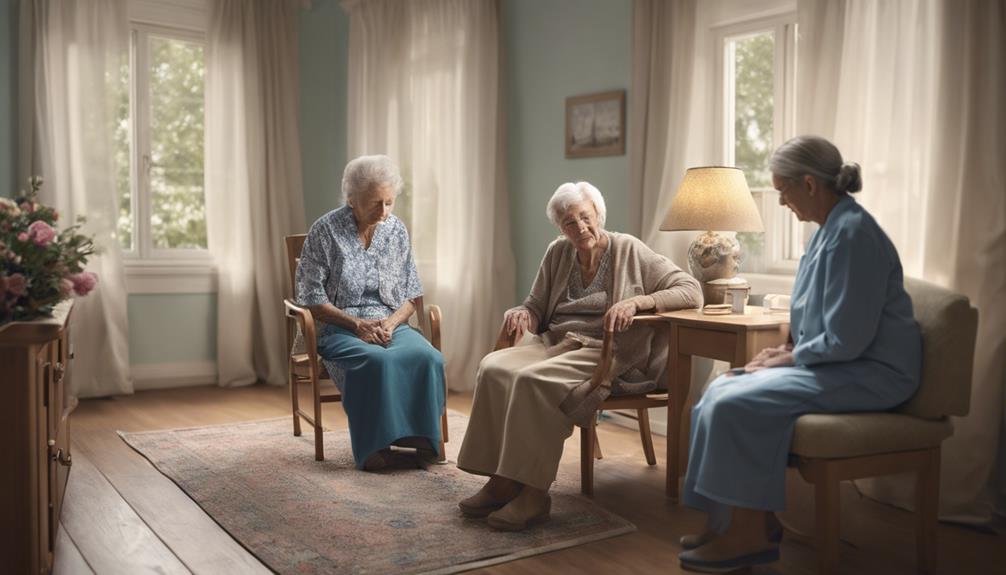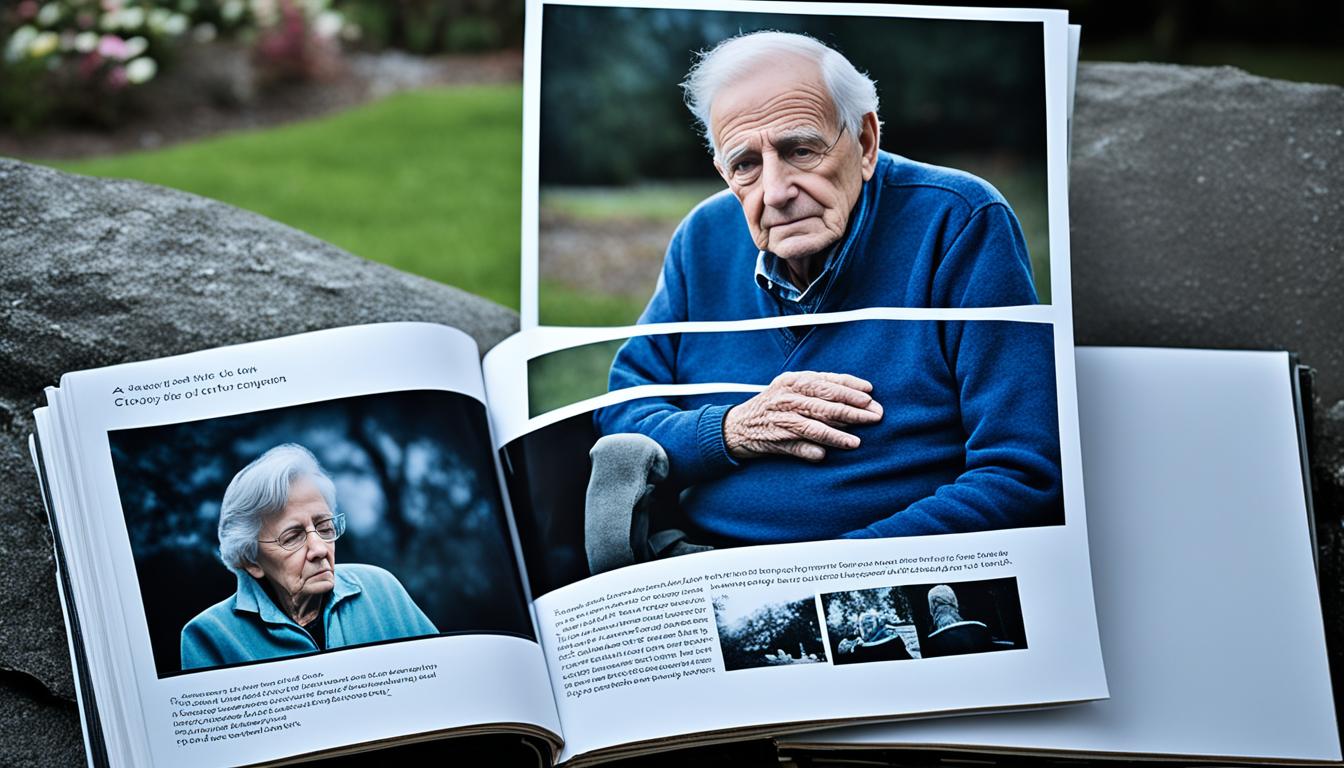It may not be widely recognized, but hospice care for individuals with dementia involves more than just medical interventions.
Did you know that hospice teams provide comprehensive support to address the unique needs of both the patient and their family?
Understanding the holistic approach of hospice care in dementia cases can shed light on the significance of this specialized form of care.
Key Takeaways
- Focuses on enhancing quality of life and providing comfort.
- Offers holistic support for physical, emotional, and psychological needs.
- Ensures dignified care with a dedicated team of nurses.
- Shifts focus from aggressive treatments to comfort and support.
Understanding Hospice Care for Dementia Patients
When navigating the complexities of hospice care for dementia patients, understanding the unique needs and challenges they face is essential for providing compassionate and effective support. Hospice care for dementia patients goes beyond just medical attention; it focuses on enhancing the quality of life and providing comfort during the end-of-life journey. Patients with Alzheimer's Disease and other forms of dementia benefit greatly from the emotional support provided by hospice social workers, who play a pivotal role in addressing their psychological well-being.
In addition to medical care, hospice services offer a range of support services tailored to meet the specific needs of dementia patients. These services aim to create a peaceful and comfortable environment for patients in the final stages of dementia. The specialized care provided by a dedicated team of nurses and professionals ensures that patients receive the care and attention necessary to maintain their dignity and well-being throughout their hospice journey. Understanding the nuances of hospice care for dementia patients is crucial in providing holistic support that addresses their physical, emotional, and psychological needs.
Eligibility Criteria for Dementia Patients

To determine eligibility for hospice care in dementia patients, specific criteria related to their functional abilities and disease progression are assessed. Hospice care reduces suffering and enhances the quality of life for individuals in the final stages of dementia.
When a person with dementia is found to have a life expectancy of six months or less and the disease has progressed significantly, they may become eligible for hospice care. This transition often occurs when the individual's cognitive and physical functions deteriorate to the point where they require more support with daily activities.
Dementia patients who are eligible for hospice care receive specialized attention from a hospice team that's specially trained to provide comfort-focused care. The focus shifts from aggressive treatments to ensuring the patient is comfortable and supported in their home or care facility.
Benefits of Hospice Care for Dementia
Moving from assessing eligibility criteria to exploring the benefits of hospice care for dementia patients, you'll discover how this specialized care enhances the quality of life for individuals in their final stages of dementia. Hospice care for dementia patients offers a range of benefits that cater not only to the patient but also to their families. The table below outlines some key advantages of hospice care for dementia patients:
| Benefits | Description |
|---|---|
| Pain Management | Advanced techniques ensure relief from pain for dementia patients. |
| Emotional Support | Social workers provide emotional support to both the patient and their family. |
| Enhanced Quality of Life | Continual care by the hospice team, including nurses, improves the overall quality of life. |
| End-of-Life Comfort | Hospice care ensures a comfortable environment for dementia patients in their final days. |
These benefits highlight the comprehensive services and support offered by hospice care, focusing on the emotional and spiritual well-being of both the patient and their loved ones. This specialized care plan aims to provide comfort and dignity to dementia patients as they approach the end of life.
Progression of Dementia in Hospice Care

As dementia progresses in hospice care, patients may experience a decline in speech, facing challenges such as limited words per day. Communication becomes increasingly difficult as the disease advances, impacting the ability to express thoughts and needs effectively. Swallowing difficulties and incontinence may also arise, adding to the physical and emotional strain experienced by individuals in hospice care for dementia. These challenges can be distressing for both patients and their loved ones, requiring specialized support and compassionate care.
In the final stages of dementia under hospice care, patients may reach a point of unconsciousness, where they become less responsive and may exhibit shallow breathing. This phase can be emotionally challenging for families and caregivers, as they witness their loved ones gradually transitioning. Hospice care during this time focuses on providing comfort and symptom management, ensuring that the patient's dignity and quality of life are maintained. Understanding the progression of dementia in hospice care is crucial for delivering tailored support and enhancing the overall well-being of those facing this difficult journey.
Additional Support for Hospice and Dementia
Navigating the challenges of dementia in hospice care can be overwhelming, but seeking additional support can greatly enhance the comfort and quality of life for both patients and their families.
When it comes to Alzheimer's and hospice and palliative care, additional support plays a crucial role in ensuring the well-being of dementia patients. Services like home care provided by trained caregivers from Assisting Hands Home Care offer personalized assistance, including personal care, meal preparation, and medication reminders tailored to the needs of dementia patients. These caregivers are adept at identifying and managing symptoms of dementia, contributing to better symptom management and overall comfort.
Moreover, flexible care options are available to accommodate different schedules and requirements, allowing families to choose the best care for their loved ones. Being in familiar surroundings also significantly impacts the comfort and well-being of dementia patients, making the hospice journey more manageable for both patients and their caregivers.
Frequently Asked Questions
How Long Does the Final Stage of Dementia Last?
In the final stage of dementia, the duration varies, lasting from a few weeks to several years, depending on the individual's progression. This stage may involve a noticeable decline in physical and cognitive functioning, making daily activities challenging.
Symptoms like incontinence, limited speech, and overall health decline are common. During this time, individuals may experience increased vulnerability to infections, decreased mobility, and difficulties with swallowing.
What Are 3 Things to Never Do With Your Loved One With Dementia?
When caring for a loved one with dementia, remember three crucial things to avoid.
Firstly, never argue or correct them, as it can lead to frustration.
Secondly, avoid rushing or hurrying them, as it increases their anxiety.
Lastly, refrain from using complex language or asking too many questions, which can overwhelm them.
These actions can help prevent agitation and confusion in individuals with dementia, fostering a more supportive and understanding environment for them.
What Stage of Dementia Is Sundowning?
In the moderate to severe stages of dementia, sundowning typically occurs. This stage is characterized by increased confusion, agitation, and restlessness in the late afternoon or evening. It affects up to 20% of individuals with dementia, impacting their behavior and mood during the evening hours.
Sundowning can disrupt sleep patterns, making caregiving challenging. Strategies like maintaining a consistent routine and minimizing caffeine intake can help manage sundowning behaviors in dementia patients.
When Should Someone With Dementia Go Into a Care Home?
When deciding if it's time for a care home for someone with dementia, consider their safety, well-being, and daily care needs. Factors like wandering or aggression may signal the need for more supervision. Care homes offer round-the-clock support, help with daily tasks, and a secure environment.
Consulting with professionals and loved ones can guide this decision. Prioritize the individual's comfort, safety, and quality of life when considering a care home for dementia care.
Conclusion
As you consider hospice care for a loved one with dementia, remember this: 70% of dementia patients in hospice experience improved quality of life. This statistic reminds us that compassionate care can truly make a difference in the final stages of life.
By choosing hospice, you aren't only ensuring comfort and dignity for your loved one, but also finding support and guidance for yourself during this challenging journey. You aren't alone in this.









